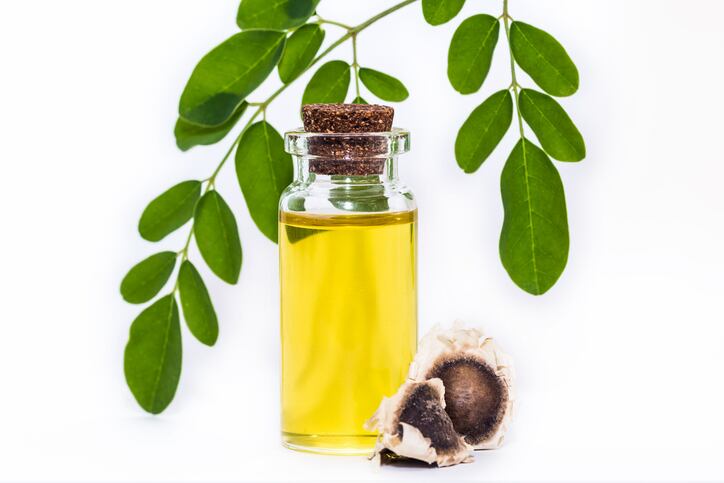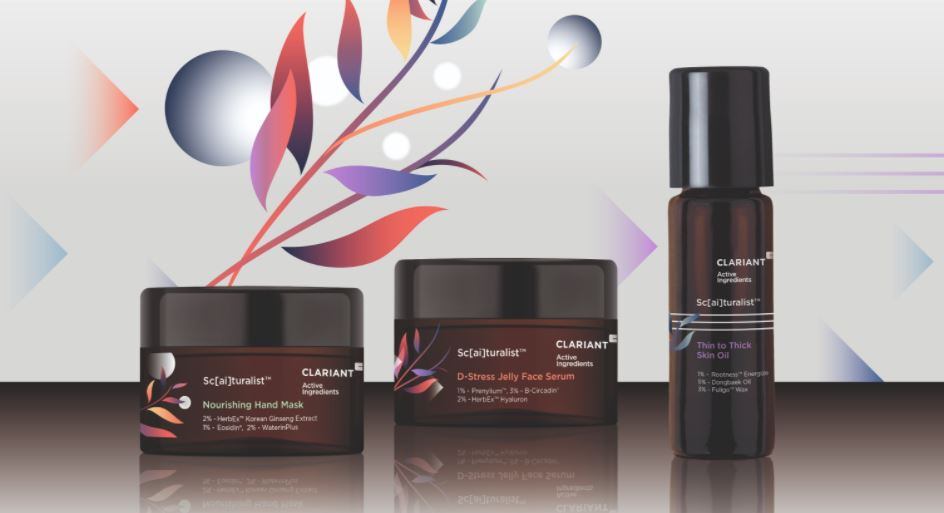Researchers at Srinakharinwirot University, Chiang Mai University and Phetchaburi Rajabhat University formulated and tested the cream on 32 subjects.
The M. oleifera seed oil cream significantly increase skin hydration by 16%, 76%, 77% and 85% after applying twice daily for one, two, three and four weeks respectively. The control cream increased skin hydration by 3%, 58%, 51%, and 48% respectively.
The M. oleifera seed oil cream also significantly reduced erythema (skin redness) after two weeks of application, compared to control cream.
Findings were published in the journal Cosmetics.
Formulation
M. oleifera seed oil contains several bioactive compounds that have antioxidant and moisturising properties in topical use, however research on its benefits are limited.
The purified (100%) cold-pressed M. oleifera seed oil used in this study was sourced from India.
Researchers formulated an oil-in-water cream base containing M. oleifera seed oil. The control cream contained mineral oil instead.
An oil-in-water cream was developed because it could spread easily over the skin, enhancing absorption of the active moringa seed oil. It also provided a more pleasant application compared to a water in oil cream.
Tests
The study recruited 32 subjects (18 to 65 years) for a skin hydration and irritation test.
In the skin hydration test, subjects first measured their skin hydration, erythema (redness), melanin contents, and elasticity readings on their arm at baseline.
They were tasked to apply 0.2 g of moringa seed oil cream or control cream twice a day, at 7 to 9 am and 7 to 9 pm routinely for four weeks.
During the experimental period, subjects were asked to avoid sunlight and application of any other moisturizers. Skin analysis was conducted at week one, two, three and four.
For the skin irritation test, the moringa seed oil cream and control cream were applied on the outer side of the left arm for 48 hours.
After 48 hours, the skin patch was graded using a skin irritation grading scale according to the International Contact Dermatitis Research Group (ICDRG).
The next readings were done again at 72, 96, 120, 144, 168, 192, 216, and 240 hours after application.
Researchers also conducted a questionnaire to assess consumer acceptability of the M. oleifera seed oil cream. Both creams were evaluated for colour, smoothness, skin hydration feeling, skin absorption, spreadability, and odour.
Findings
The results showed that moringa seed oil significantly increased skin hydration, and reduced redness.
Researchers explained that moringa seed oil helped increased skin hydration by creating a hydrophobic barrier over the skin and blocked dehydration.
Skin erythema is a result of skin inflammation and irritation. Researchers believe M. oleifera’s natural antioxidant compounds such as α-Tocopherol and fatty acids (oleic, palmitic, stearic) play a role in increase moisture retention, and preventing oxidative stress.
In the melanin test, readings of both groups were not significantly different from the baseline, suggesting that moringa seed oil cream and the cream base did not have whitening or brightening effects.
The results also showed no significant change in skin elasticity readings in both groups when compared with the baseline.
The human skin irritation test showed that there were no significant adverse effects on the participants’ skin after applying moringa seed oil cream. Researchers suggest the moringa seed oil cream developed in this study is appropriate for pharmaceutical and cosmetic uses.
The results of the participant’s satisfaction showed that participants preferred the colour, smoothness, and skin hydration feeling of the moringa seed oil cream to the control cream. The scores of satisfaction in the skin absorption, spreadability, and odour of the two products were not significantly different.
In future formulations, researchers said the moringa seed oil cream may not require colouring agents, although a flavouring may be recommended.
Source: Cosmetics
https://doi.org/10.3390/cosmetics8010002
“Moringa oleifera Seed Oil Formulation Physical Stability and Chemical Constituents for Enhancing Skin Hydration and Antioxidant Activity”
Authors: Sirivan Athikomkulchai, et al.


